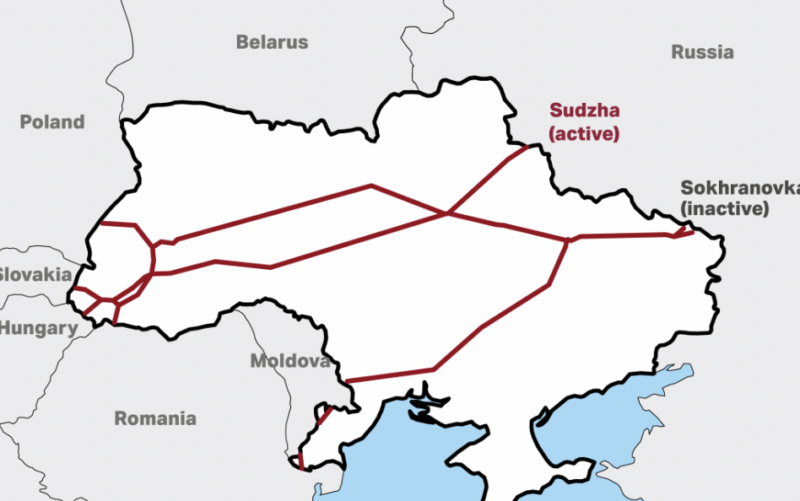The Ukrainian president’s decision to halt gas transit from Russia has sparked heated debate, with some hailing it as a step toward independence from Russian energy and others warning of severe economic fallout for the European Union.
According to energy market expert Olivér Hortay, president of the Századvég Economic Processes Research Institute, the move will drive up costs across the EU, with potential long-term consequences.
Supporters of the termination, largely aligned with EU sanctions against Russia, view the stoppage as a positive shift. They argue that the EU no longer relying on Russian gas through Ukraine aligns with its broader energy strategy. As Hortay explained in an interview with Magyar Nemzet, “The former argue that the halt in transit is a positive development because the EU will no longer buy Russian gas on this route, and they also repeatedly state that the EU is prepared for the cessation of transit.”
But not everyone is convinced this is a win. A more moderate camp, including Hortay, warns of the financial and social toll it could exact. “Representatives of the more moderate position emphasize that the halt in Ukrainian transit will have harmful consequences for the entire European community,” he added.
While short-term supply issues may be manageable thanks to reserves and alternative routes, the economic strain is already evident. On the first trading day of 2024, European gas exchanges saw prices spike above last year’s highs. Hortay noted that this reflects how interconnected EU member states’ gas markets are, meaning the ripple effects will touch every country.
Slovakia, for instance, faces steep transit costs due to the longer routes required to secure natural gas. Slovak Prime Minister Robert Fico estimates that the additional expenses could saddle the EU with €60 billion to €70 billion in higher gas and electricity costs. “The Ukrainian president’s move will increase costs for the entire European Union,” Hortay quoted Fico as saying.
The broader economic implications are equally troubling. Europe already struggles with high energy prices compared to global competitors, with European companies paying four to five times more for natural gas than their U.S. counterparts. Hortay emphasized that the transit shutdown exacerbates this disadvantage, making it harder to lower energy prices through increased supply.
Despite the challenges, Hungary may see an opportunity in the shifting dynamics. In recent years, Hungary has rerouted its Russian gas imports to southern routes and invested in cross-border infrastructure, positioning itself as a regional gas distributor.
Hortay highlighted this trend, noting that Hungary’s strategy strengthens its geopolitical standing. “Due to transit revenues, Ukraine loses over $1 billion a year by closing its gas taps. Meanwhile, Hungary becomes increasingly pivotal in the energy supply chain for neighboring countries.”
Austria, traditionally a key transit hub, risks losing its position permanently if Ukrainian transit remains inactive. Last year, Hungary sold record volumes of gas to Slovakia, and gas flows on the Hungarian-Ukrainian border have reversed, moving eastward instead of westward.
Hungary supports diversification, advocating for multiple suppliers and routes to foster competition and drive down prices. Expanding infrastructure, such as increasing the capacity of TurkStream, remains a critical goal. Hortay noted that all involved nations, including Hungary, have expressed support for such investments.
Meanwhile, the European Commission’s policies, aimed at reducing reliance on Russian gas, have inadvertently tightened supply and pushed prices higher. Hungary’s emphasis on diversification and capacity expansion could offer a blueprint for mitigating these challenges in the years ahead, concluded Hortay.
The shutdown of Ukrainian gas transit is a double-edged sword. While it aligns with EU efforts to sever ties with Russian energy, the economic repercussions are hard to ignore. As Europe grapples with rising costs and supply constraints, countries like Hungary are seizing the chance to reshape the region’s energy landscape.




